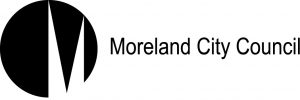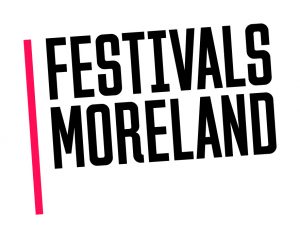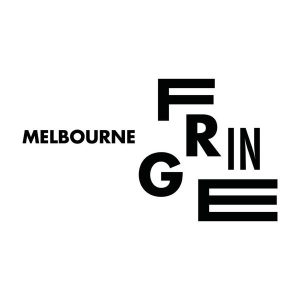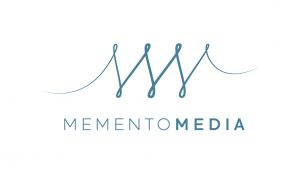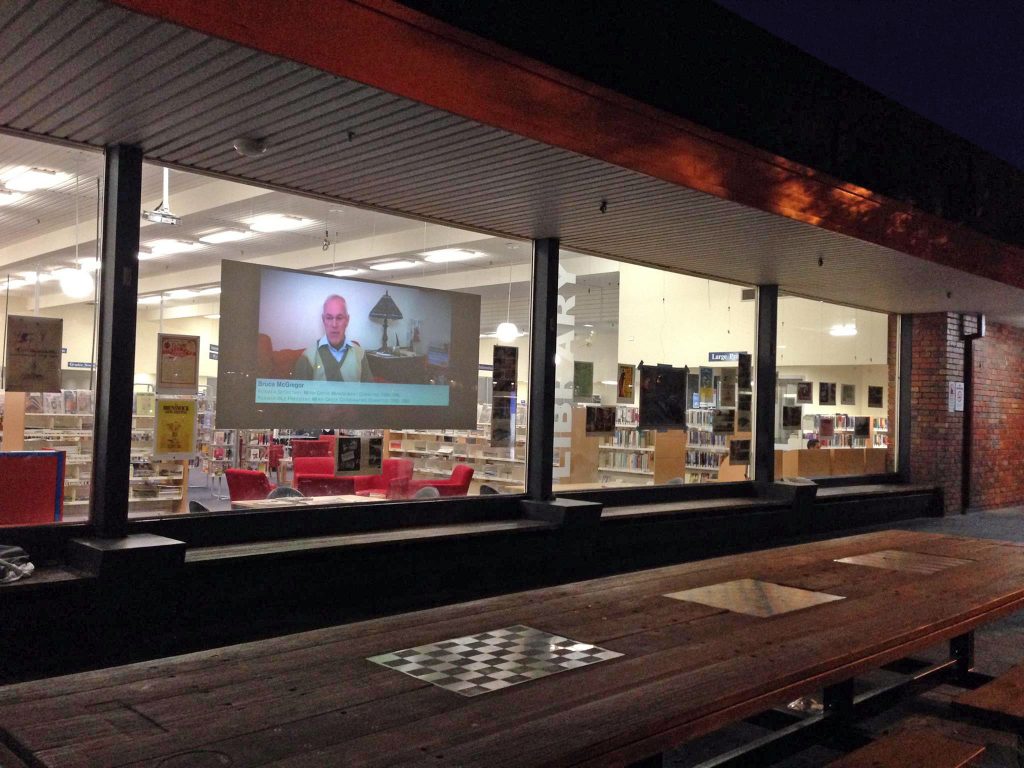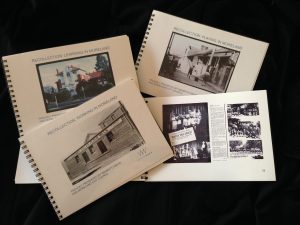ReCollection: Remember, reflect, record and collect
As part of the 2017 Melbourne Fringe Festival, Memento Media and Moreland City Council presented ReCollection at the Coburg Carnivale. ReCollection celebrated, shared and captured memories of Moreland’s places, history and faces. The installation showcased oral history based documentaries and a range of printed local historical material which helped attendees learn about local history and take a trip down memory lane. The specially-built ReCollection Recorder allowed locals to add their own stories to the collection.
Background
The participative local history instalment took place during the two-day Coburg Carnivale (22-23 September 2017). It was presented in an accessible and down-to-earth format, aiming to engage new audiences in their local history as part of the 2017 Melbourne Fringe Festival.
The exhibit sourced material from Moreland City Libraries’ local history collection, the State Library of Victoria, Picture Victoria, Victorian Collections, the Coburg Historical Society and local individuals’ private collections. The idea was to use photo-elicitation and reminiscence therapy techniques to assist Carnivale attendees to connect with their memories of the area. The ReCollection Recorder provided a means for them add their own stories to the collection if they wished. The installation centred around the Coburg Library, with both interior and exterior components.
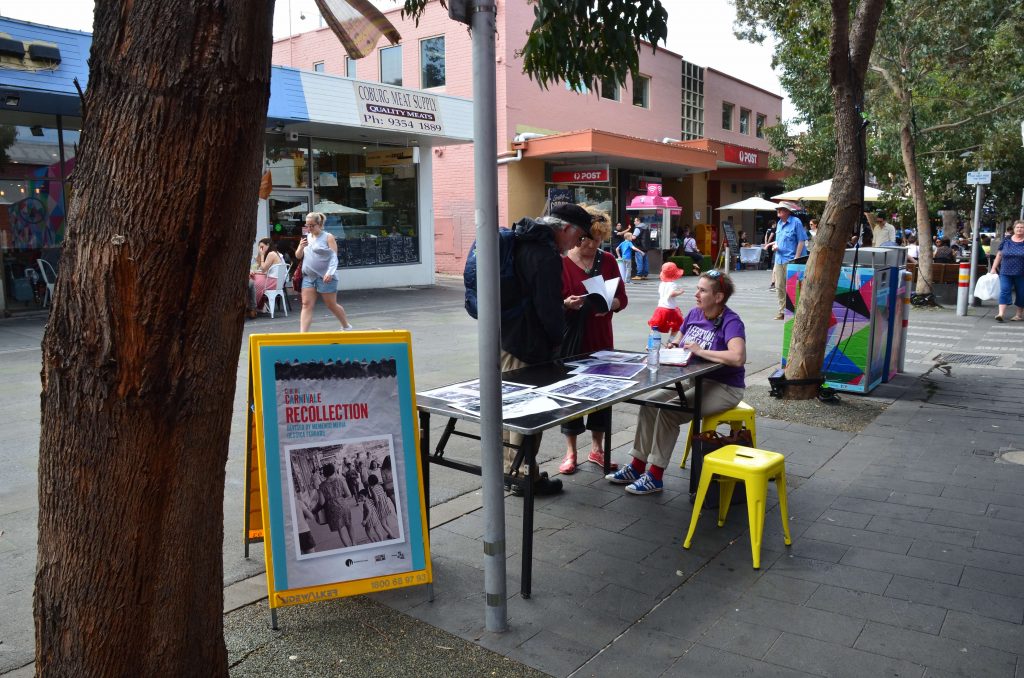
The information hub situated in front of the exhibit allowed event attendees to engage with the historical material and schedule a recording session. [Photographer: Annika Brock]
The exhibit
Exterior
- Short films: eight oral history-based documentaries projected onto the exterior of the library played on loop (total of 38 minutes content).
- Printed images: a curated set of 26 location-specific images: maps, posters, photographs, magazines, yearbooks, advertisements and newspapers.
Interior
- A mini-theatrette provided chairs and headphones to allow people to view the documentaries in comfort.
- Scattered throughout the library were six pull-up banners about Coburg Lake, outlining the history of this important local site (provided by the Coburg Historical Society) along with additional prints of the curated local history material.
- A display case presented historical local newspaper content.
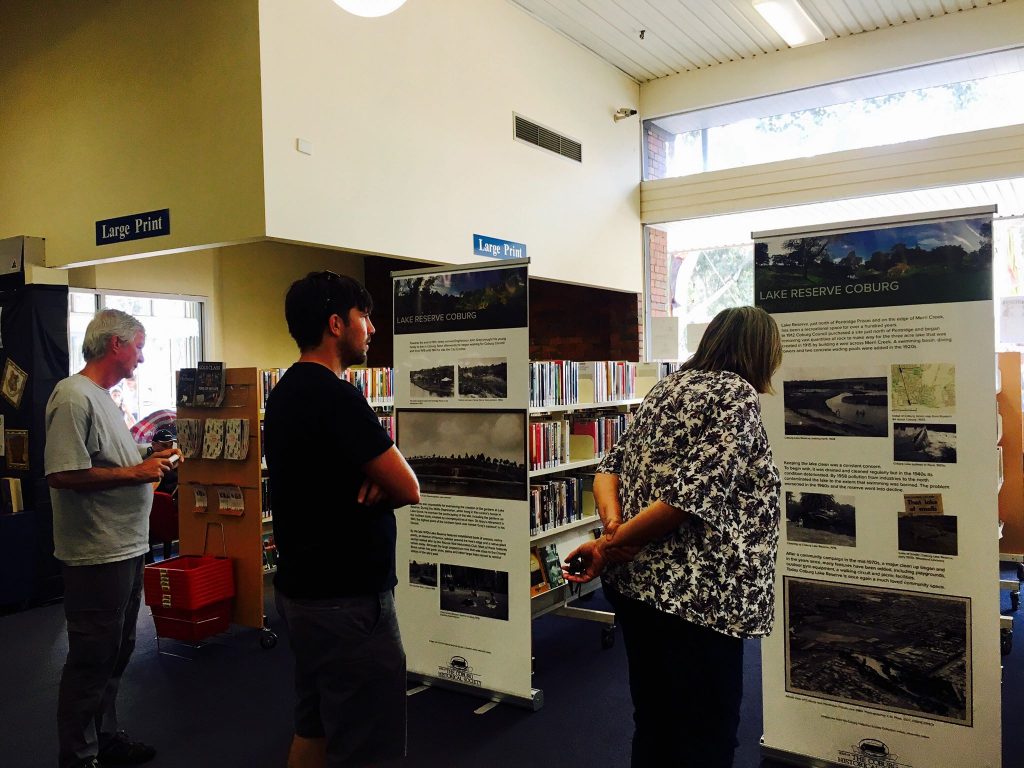
Two of the six banners courtesy of Coburg Historical Society. Coburg Lake Reserve banner series – creators: Katrin Strohl and Cheryl Griffin with help from society volunteers.
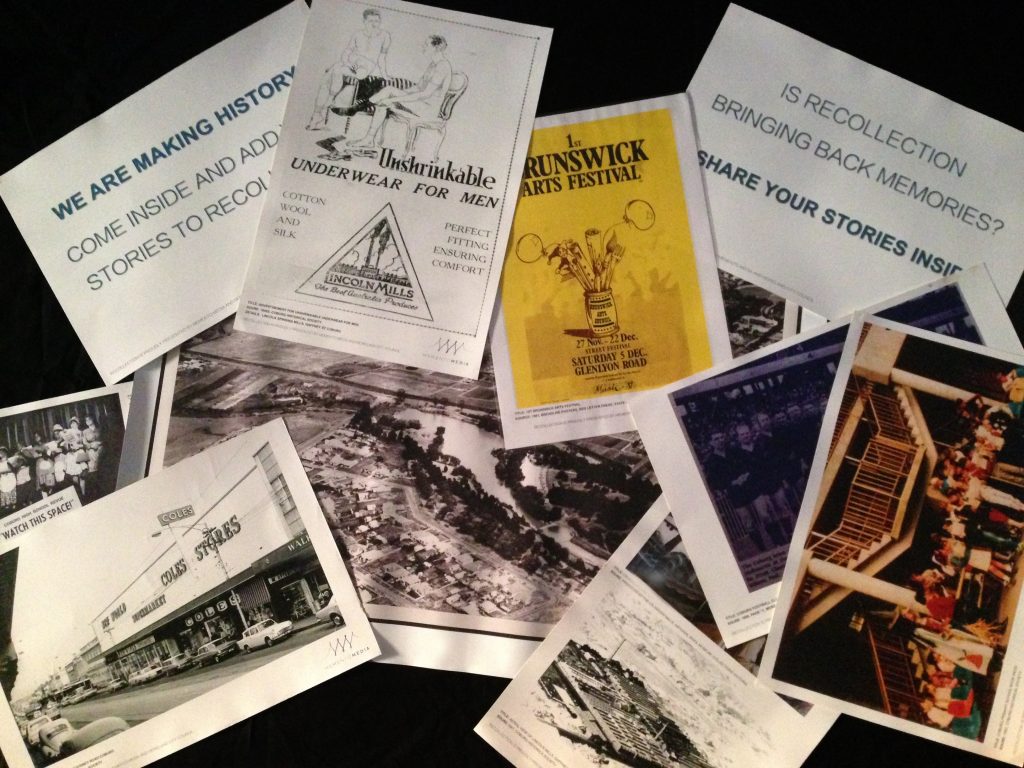
A small selection of the exhibition materials that were used to engage attendees and encourage them to participate.
Participative component
- The purpose-built ReCollection Recorder was situated in an intimate room at the back of the library. The room was equipped with image scanning and film recording equipment, memory prompts, and an oral history practitioner who conducted and filmed interviews.
- Photo flip books on the themes of learning, working and playing in Moreland were used to prompt participants’ memories and elicit responses.
- Individuals were able to book ahead or walk-in on the day to participate.
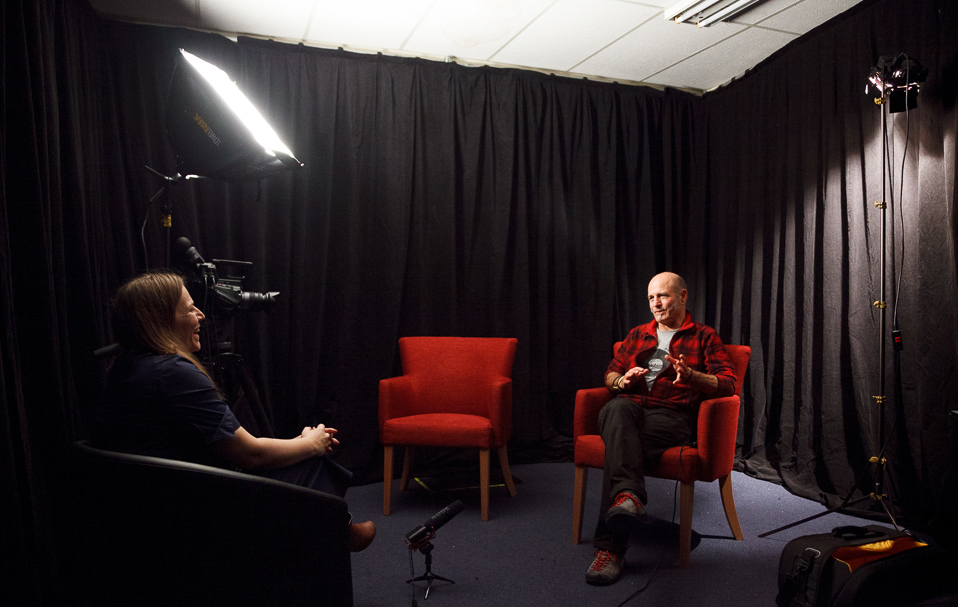
Community radio host, Joe Malignaggi, sharing stories about growing up in North Coburg in the purpose built ReCollection Recorder.
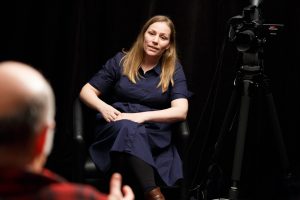
Jessica Brock conducting an oral history interview.
Accessibility
- The entire exhibition was wheelchair accessible.
- The documentaries were closed-captioned, and an Auslan interpreter remained on-site to assist hearing-impaired people to engage with the exhibit. This was advertised well in advance of the event: https://www.facebook.com/ArtsMoreland/videos/494454047571409/
- The mini-theatrette provided a secluded area for individuals who can become overwhelmed by large crowds and noise.
The documentaries
Prior to the exhibition, oral history interviews were conducted with six members of the Moreland local community. Local history images were added to their private collections to produce eight documentaries ranging in length from three to eight minutes.
Coburg Historical Society’s former president, Malcolm McIlvena, talks about Coburg’s geography and how that has shaped the region’s industries. He then discusses the first European settlements.
Heather Cox’s mother raised her brothers and sister when both her parents died in the 1940’s. Heather’s father started work in a clay pit in Brunswick and ended up running his own tip-truck business.
Dr. Sue Lopez Atkinson’s grandfather was one of the founders of the free lending library at the Mechanics institute in Brunswick. She talks about her unfortunate school experiences and how she has devoted her life to working within the community to drive change in early childhood learning.
When Ann and Bruce McGregor moved to Brunswick in 1967, the Merri Creek was in bad condition. They worked with many community groups through their roles in the Merri Creek Coordinating Committe and the Friends of Merri Creek to bring the creek back to life.
Heather Cox grew up on a small farm in Pascoe Vale where she was surrounded by relatives, animals and a backyard ripe for exploration and horsing around.
Dr. Sue Lopez Atkinson is a proud Yorta Yorta women born in 1955. She remembers her parents and reminisces about kicking around the suburb with the local kids in Coburg.
Meredith Lawrence established Fawkner Community House seventeen years ago. She reflects on her work with the community and we are treated to a performance from the Heart and Soul Singers.
Heather Cox talks about courting in late 1950’s Victoria — a time of rock ‘n’ roll, clapped-out cars and Saturday night dances. She met her husband at the Westbreen Hall in Pascoe Vale.
Collaboration
The success of the project hinged on the support from Moreland Council, Coburg Library, local historical groups and Moreland individuals. The Coburg Historical Society generously shared their Coburg Lake Reserve banner series and provided the curator with access to their extensive image collection. The local history librarians and council staff provided access to material, interview subjects and logistical support. Brave Moreland individuals shared their personal photos and stories to be made into documentaries and aired on the big screen.
Post exhibition engagement
Following the event, the exhibit material remained in place for two weeks, after which the remnant print media was donated to Moreland Libraries’ local history collection and the documentary films distributed online via Memento Media’s website. Content was incorporated into to existing local history online resources/communities, including WikiNorthia (a collaborative history project with Northern Councils) and a number of local history channels. Additional significant engagement occurred through social media where the material was shared, added to and commented on: the film series received over 4,000 social media views in total.
Collected materials/ Second phase
Ten Moreland locals shared stories and photos in the ReCollection Recorder during the exhibition. These additional stories will be shared online as part of the second phase of the project in late 2018.
Click here to view our archive of the 2017 Coburg Carnivale and ReCollection event information.
Acknowledgement
Jessica Ferrari and Memento Media received funding and in-kind support from Moreland City Council via the Festivals Moreland Artist Development Program. We gratefully acknowledge their assistance in making this project possible.
